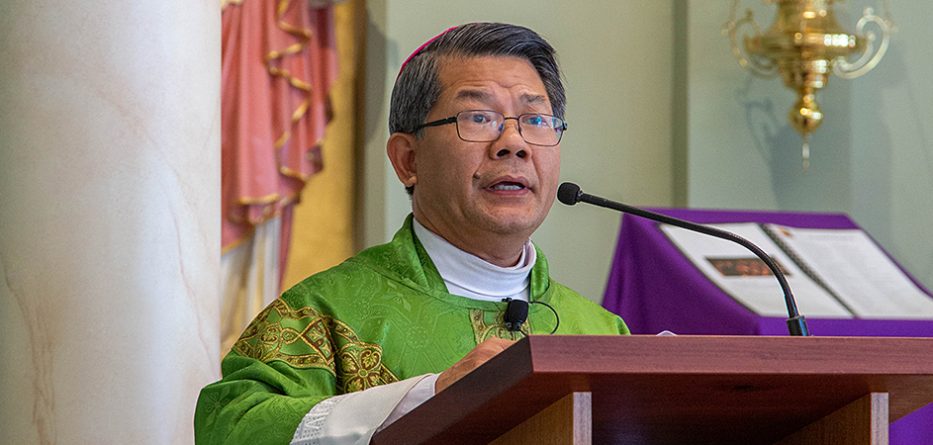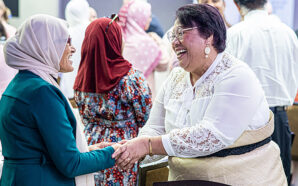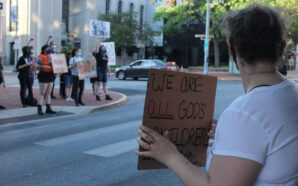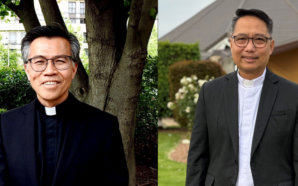Most Reverend Vincent Long Van Nguyen OFM Conv DD STL, Bishop of Parramatta
Homily for the 11th Sunday in Ordinary Time Year B 2021 at Holy Family Parish, Mt Druitt
Readings: Ezekiel 17:22-24; 2Cor 5:6-10; Mark 4:26-34
13 June 2021
Living the power of vulnerability
Sisters and brothers,
Sometimes, a person of insignificance can create history and change humanity for the better. This was the case of a little girl called Ruby Bridges. In 1954, she was one of the first African American children who passed the exams needed to attend an integrated primary school. She had to be escorted by the police and despite the racial slurs, screaming crowds, and only having one teacher willing to accept her, Ruby did not miss a day of school. She became a symbol of desegregated schooling in America.
In our Biblical tradition, there is also a strong emphasis on the way God uses little things to make big things happen. It warns us against looking down on small beginnings, insignificant events and people, which may lead to the fulfilment of God’s purpose. Whereas success and power trump failure and weakness according to the logic of popular culture, it is vulnerability, powerlessness and smallness that win the day according to the logic of the Bible.
In the first reading, Ezekiel prophesied that God would refashion the people of Israel in spite of the threats to their very existence. It was a very tumultuous time in their history. The golden era of David and Solomon was over. Israel became a house divided and a pawn for much more powerful kingdoms such as Babylon, Egypt and Persia. They experienced shocking violence, war, invasion and occupation. Their faith was tested to the extreme limits. Yet in the midst of this prolonged turmoil, the prophet instilled them with a message of hope. He used the metaphor of small shoot which is similar to Isaiah’s image of the stump of Jesse, in order to describe the revitalisation of Israel. “I will plant it (the shoot) myself on the high mountain of Israel. It will sprout braches and bear fruit”. The shoot here refers to God’s faithful remnants who remained steadfast in the midst of adversity and who in turn formed the nucleus of Israel after the exile. It was out of these faithful remnants that God’s Anointed would emerge.
Following the prophetic tradition, Jesus speaks of the kingdom against the background of popular expectation of a Caesar-like Messiah. Already, he had experienced a chilly reception from his own townspeople. It was a disappointing reality check after the initial success in his ministry of preaching and healing. It was also a sober lesson for those who followed him. They should be under no illusions about the kind of Messiah he was and what it meant to be his disciples. The Gospel of Mark makes clear that Jesus is not a hero in a conventional sense. Rather, he is every bit an antihero.
Today’s episode reinforces the notion that there is something fundamentally counter-cultural about Jesus and what he stood for. The Kingdom does not manifest itself in size, in success and in power. Instead, it is found in the smallness of the mustard seed, in in the poverty of the widow’s mite, in the rarity of the pearl or in the insignificance of the yeast. These images are essentially counter-cultural. In other words, they challenge the prevalent attitude about greatness, success and power.
Jesus teaches something quite radical through these parables. He teaches that God’s kingdom though begun in dishonour and ignominy will reach its fulfilment in a way that defies human expectations. More importantly, the way to the kingdom is a discipleship of vulnerability, humility and powerlessness. Just as Jesus embraced the journey of downward mobility that brought him humiliation, betrayal, defeat, failure and death on the cross, the disciple’s proof of authenticity is not popularity, success and acclaim. Rather, he/she will have to prove his/her mettle in the crucible of suffering in imitation of the Servant Master.
Like Ezekiel before him, Jesus opens us to the vision of the fulfilment of divine purpose. Like a noble cedar that provides a home for every winged creature, we are called to persevere in the enterprise of the Kingdom. The Church becomes the instrument by which the Kingdom extends its branches worldwide and brings forth fruit from all nations. But as Paul sounds a cautionary note in the second reading, we are guided “by faith and not by sight”.
Dear brothers and sisters,
We are living in a time of diminishment. But if the Kingdom is like a mustard seed, then the size of our institutional Church is not as important as the quality of our witness. In a world of changing values and a crisis of trust, we must adhere to the constant message of faith, hope and love for all. We must continue to walk with people like Ruby Bridges on the journey to greater justice, freedom, equality and emancipation. As long as we embody that vision of church in our practice, we become a lighthouse for the world. May we learn the art of vitality in smallness and increase the quality of our faith and relationship in this fallow time.








